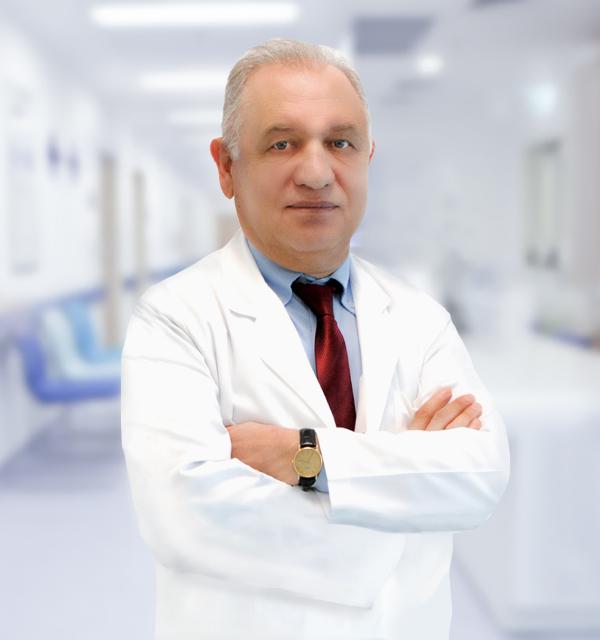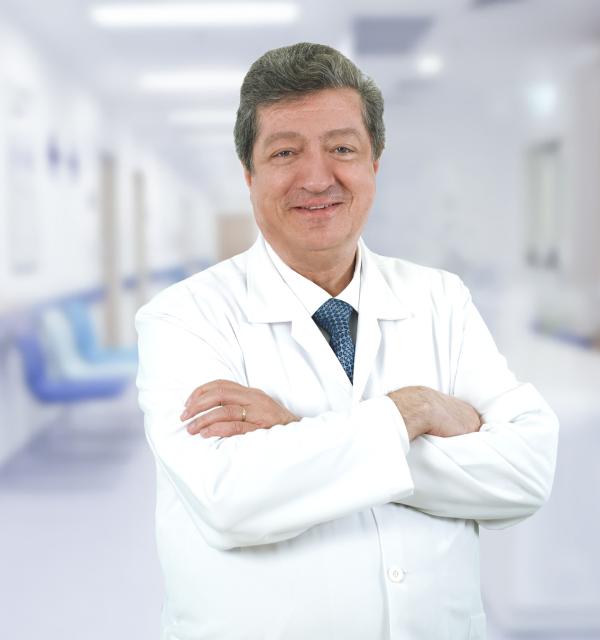Questions About Gastroenterology Surgery
Yeditepe University Hospitals Gastroenterologist answered the questions about Gastroenterology Surgery.
What is Gastroenterology Surgery?
There may be confusion in society regarding the definition of gastroenterology surgery. The department of internal diseases that deals with the gastrointestinal system and performs endoscopic procedures intensively is the department of gastroenterology. The branch specialization that treats surgical diseases in this department of gastroenterology is gastroenterology surgery. Gastroenterologists do a minor in gastroenterology surgery after general surgery. Gastroenterologists try to treat oral to rectal, especially malignant cancers of the esophagus, stomach and intestinal cancers and other disorders that require surgical correction, biliary tract, liver, pancreas, and spleen diseases, and intra-abdominal surgical diseases.
What are the Symptoms of Stomach Cancer?
Stomach cancer is a very insidious type of cancer. 90 percent of these cancers progress without any symptoms. The stomach is a large organ in the form of a one-liter flask. In order for cancer to cause any complaints, it must either cause systemic complaints or several problems must occur in that area. But the first symptom is usually meat intolerance. In addition, if it is ulcerous cancer, stomach cancer may present with bleeding from the mouth. However, stomach cancer may also manifest itself with complaints such as stomach pains, pain that wakes the person up at night, weight loss, loss of appetite, and bleeding from the anus. Because stomach cancer is a very insidious disease, community screening is very important. Stomach cancer screening with endoscopy (stomach gastroscopy) and colon cancer screening with rectal colonoscopy should be done for all people over 50 years old, regardless of whether they have complaints or not.
Do Gastritis Problems Pose a Risk for Cancer?
If chronic gastritis is not treated, it increases the risk of stomach cancer. Other conditions increase the risk of stomach cancer. Genetic familial predisposition, gastric polyps, chronic gastritis, blood group "A", Helicobacter Pylori gastritis, family history, and stomach cancer are risk factors.
Is Rapid Weight Loss a Sign of Stomach Cancer?
Although 90 percent of the patients have no complaints, some of them have stomach cancer even though they have never smoked or used alcohol. Sometimes, patients may present to the physician with the complaint of weight loss without any complaints. For this reason, if a person loses more than 15 percent of his/her total weight in the last three months involuntarily without dieting, a cancer screening should be done on his/her body. Since it may be cancer associated with the lung, brain, kidney, liver, abdominal organs, or bone marrow, these should be screened and investigated.
Can Stomach Cancer Be Diagnosed with Endoscopy?
Stomach cancer can be diagnosed most commonly with the endoscopic method called "Upper GI endoscopy". With the pathology obtained from here, the type of stomach cancer, how aggressive the cell is, and how much of the stomach is involved can be understood. However, endoscopy alone is not sufficient for diagnosis and staging. After examination, family history (anamnesis), tomography, and other screening methods (PET, colonoscopy, liver, intra-abdominal, and lung scans) if necessary, staging is carried out for the patient. Thus, the diagnosis and stage of cancer are clarified.
How to Treat Stomach Cancer?
The main treatment method for stomach cancer is surgery. There is no treatment for stomach cancer without surgery. However, cancers of the gastrointestinal tract have four stages, and due to the unique characteristics of each of these four stages (stage 1, stage 2, stage 3, and stage 4), there are various treatment methods. While there is no surgical option in a stage 4 cancer that has spread everywhere, in general terms, hot chemotherapy can be applied in stage 4 only in cancer that has reached the abdomen and the peritoneum is limited to the stomach and is limited to the surrounding area of the stomach. Endoscopic treatment methods are used in microscopic stomach cancers that are below stage 1, which is defined as stage 1 and stage 0. Surgical treatment especially closed laparoscopic surgery, is applied in stage 2 and stage 3 stomach cancers. In some patients, it is seen that both endoscopy and laparoscopy are used together.
Is There a Chance of Treatment at Every Stage of Stomach Cancer?
There are treatment options for every stage of stomach cancer. However, in the case of cancer, the 5-year survival rate in stomach cancer is over 90 percent for stage 1, while these rates may decrease to 70-50 percent in stage 2 and stage 3. 5-year life expectancy can be reduced to 50 percent in stage 3, advanced stage 3 cancer. In stage 4 cancers, it was stated in the literature that, if complete evacuation can be achieved with hot chemotherapy, the life expectancy of patients who had a chance to live 3-5 months before can increase up to 27 - 44 months today.
Does Stomach Cancer Metastasize?
As in all cancers, metastasis in stomach cancer is a feared situation for patients. When some stomach cancer patients present to the physician, the disease may have metastasized, and cancer may have spread to the lymph nodes around the stomach, liver, abdominal organs, and lungs. In these conditions, appropriate treatments can be performed after the situation is determined by imaging methods.
What are the New Approaches in the Surgical Treatment of Stomach Cancer?
There have been many new approaches in the treatment of stomach cancer in recent years. In the past, mortality (death) rates were higher because stomach cancers were detected at very late stages. However, because of the ease of access to endoscopy and colonoscopy nowadays, early-stage stomach cancers are observed more commonly in our country.
Do Symptoms Change Based on the Stages of Stomach Cancer?
Symptoms of stomach cancer may vary depending on the stage, the type of tumor, and the location of the tumor in the stomach. For example, in tumors between the esophagus and the stomach valve, patients may apply to the physician with complaints such as regurgitation of swallowed food, nausea, vomiting, obstruction, and inability to swallow, while patients with ulcerated tumors in the small side of the stomach may present with bleeding. Tumors on the gastric outlet valve, on the other hand, manifest themselves as regurgitation of undigested food that has waited. While early satiety and abdominal pain are observed in tumors growing towards the spleen on the larger side of the stomach, complaints of back pain that wakes the person up at night are encountered in gastric tumors in the region close to the pancreas. However, it is almost impossible to detect stage 1 stomach cancer without an endoscopy.
Who Can Undergo Laparoscopic Surgery for Stomach Cancer?
Laparoscopic surgery in stomach cancer can be applied to almost complete stomach cancer patients in accordance with the general laparoscopy principles. However, laparoscopic surgery can be applied if the patient has no additional problem with the liver or if no lung disease will cause a serious problem of carbon dioxide retention in the lungs, if the person's life will not be at risk due to inflating the abdomen, bleeding problems will not arise, and there will be no need for 4 or 5 organ removals.
In laparoscopic surgery, the abdomen is first reached with a camera through a 1 cm incision. The liver, spleen, peritoneal surfaces, intraperitoneal membrane surfaces, small intestines, and fatty tissue on the small intestines and stomach are observed one by one. If distant metastases are observed in that area, chemotherapy is administered to the patient. In patients without metastases, surgery is performed. First, the fatty tissues and lymphatic tissues around the stomach are cleaned together with the vascular structures. In some patients, the entire stomach is removed, and in some patients, 75 to 85 percent of it is removed. The most important point to be considered here is the removal of the surrounding fatty tissues and lymphatic tissues along with the stomach itself.
What are the Advantages of Laparoscopic Surgery for Stomach Cancer for the Patient?
The hospital stay is shorter after laparoscopic surgery for stomach cancer. Patients can return to their daily life after 3-5 days. However, heavy physical activities are not allowed for the first 3-5 months. Since it is not possible to eat heavy foods after the operation due to the newly formed small intestinal tract in a person whose entire stomach has been removed, additional liquid diets are in question. One of the most important advantages of laparoscopic surgery is that the patient suffers less pain.
Does the Age of the Patient Affect the Result in Laparoscopic Surgery of Stomach cancer?
In laparoscopic surgery for stomach cancer, the general health of the patient is more important than the age of the patient. If the patient does not have a lung or heart problem, it does not affect the success of laparoscopic surgery. At this point, the experience of the physician and the technological infrastructure is also extremely important.
What Points Should Be Considered After Stomach Cancer Surgery?
It should not be forgotten that chemotherapy to be applied after stomach cancer surgery is a form of life-saving treatment. In addition, it is important to pay attention to the dietary treatments given. However, heavy physical activities should also be avoided. Physician control (both the surgeon and oncologist) is essential for the first 2 years and every 3 months after the operation.
What Should Be Done to Prevent Stomach Cancer?
If a person has chronic gastritis, gastritis due to Helicobacter pylori bacteria, reflux, or ulcer, he/she should definitely receive treatment. However, it is important to change eating habits. It is important to stay away from roasted meat, kebab-like dishes, and salty products, and to adopt healthy eating habits in general. In addition, as in all types of cancer, avoiding excess weight, not being inactive, and adopting a positive life philosophy is effective in preventing stomach cancer. In addition, it is necessary to stay away from areas with air pollution, water pollution, and soil pollution and not consume the nutrients of those regions.
Is There a Link Between Eating Habits and Stomach Cancer?
The relationship between stomach cancer and nutrition has also been proven by research. For example, the incidence of stomach cancer is significantly higher in societies where high-salt foods such as smoked fish and meat (pickled), processed meat containing nitrite, and canned food are consumed. The best example of this is Japan. In migrants from Japan, which is one of the countries where stomach cancer is most common in the world, the incidence of stomach cancer decreases over decades and regresses to the frequency of stomach cancer in the country where they settled. This shows how effective the diet is in the formation of this disease.
In addition, alcohol and smoking are among the most important causes of stomach cancer, as in all other types of cancer. Consumption of organic fruits and vegetables and consumption of boiled meat reduces the risk of stomach cancer.
Is Stomach Cancer Genetically Transmitted?
Stomach cancer is one of the cancers with the genetic transmission. The "E-cadherin" gene mutation plays an important role in the development of stomach cancer.
Do Stomach Polyps Pose a Risk for Stomach Cancer?
Gastrointestinal cancers are usually cancers that develop on the basis of polyps. These polyps develop especially in the large intestine. It takes an average of two years for the said polyps to become polyps containing cells that will contain cancer. For two years, the body offers an option. It almost says, "Take this polyp from my body and throw it away". If this is treated, the risk of stomach cancer and colon cancer can be eliminated. However, if that polyp is not removed, endoscopy controls are not performed, and if it is ignored, that polyp may grow and turn into cancer. For this reason, polyps must be controlled and removed with methods called a polypectomy.
Intestinal polyps should be removed when detected. Depending on the type and number of polyps, the procedure may vary.
Polypectomy: It is the removal of the polyp from the large intestine with forceps or a wire loop. If the polyp is larger than 1 centimeter, the procedure can be performed by injecting a liquid to remove and isolate the polyp from the surrounding tissues.
Minimally invasive surgery: Polyps that are too large or cannot be safely removed during a screening of the large intestine and rectum are usually removed laparoscopically.
Colon and rectum removal: In the presence of a rare inherited disease such as FAP, surgery may be required to remove the colon and rectum (total proctocolectomy). For people with such familial health problems, the best way to prevent colon cancer is to have the colon and rectum completely removed.
”




